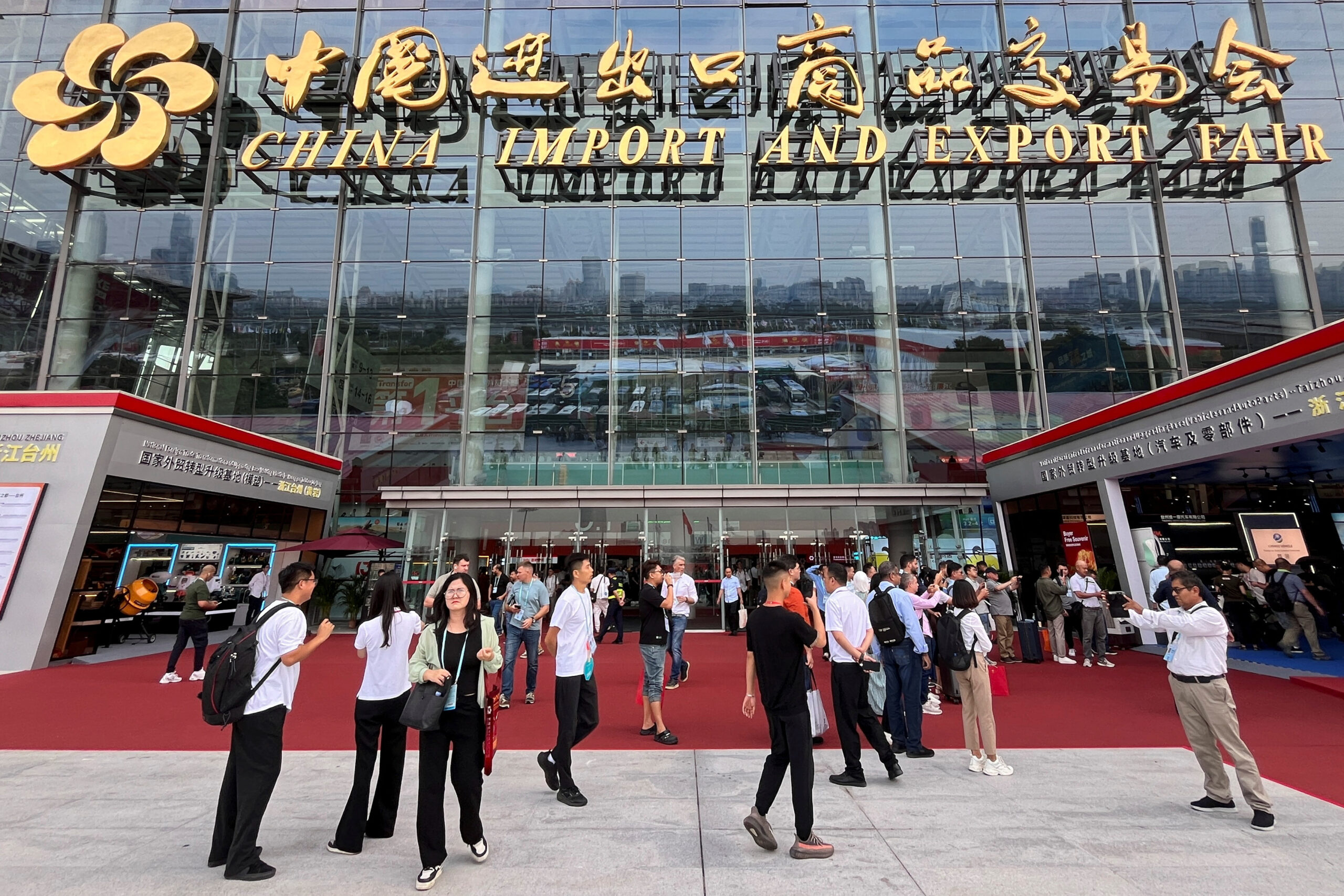If Donald Trump wins the U.S. presidential election next month, Mike Sagan’s toy manufacturing company, KidKraft, plans to cut its China supply chain by half within a year. The company, which also produces outdoor play equipment, had already moved 20% of its production away from China to countries like Vietnam and India following Trump’s introduction of tariffs ranging from 7.5% to 25% in July 2018, during his first term.
Trump has now threatened to impose blanket tariffs of 60% on Chinese imports, which Sagan considers a significant and blunt tool that could change the game for businesses. He believes that Kamala Harris would adopt a less aggressive approach but would still likely confront China regarding trade issues.
“The writing is on the wall that it’s going to be difficult,” said Sagan, KidKraft’s vice president for supply chains and operations. The company has already reduced its number of Chinese suppliers from 53 at the beginning of the year to 41.
“The question is: will it be extremely difficult or just difficult?”
The looming threat of tariffs is causing unease within China’s industrial sector, which exports over $400 billion worth of goods to the U.S. annually and supplies even more in components for American products. Of the 27 Chinese exporters interviewed by Reuters, 12 indicated plans to expedite their relocation efforts if Trump secures another term, while four others, currently operating solely in China, said they would establish factories abroad in response to tariff hikes. The remaining 11 exporters had no specific plans contingent on the election results but expressed concerns about potential loss of access to the U.S. market.
Many producers anticipate that heightened tariffs will disrupt supply chains, shrink profits in China, and lead to job losses and decreased investment, exacerbating an already declining economic growth. They warn that a trade war could escalate production costs and consumer prices in the U.S., even if factories are relocated.
China’s Ministry of Commerce did not respond to inquiries from Reuters about how the election outcome might affect its economy, trade, and diplomatic relations with the U.S.
Matt Cole, co-founder of m.a.d Furniture Design, has yet to shift his production overseas. In 2018, his research in Southeast Asia showed that he would still rely on importing 60% of furniture components from China. He found that logistical costs and other inefficiencies mirrored the added expenses from a 25% tariff.
However, he now feels vulnerable. If Trump wins, he plans to shift as much product to the U.S. as possible before tariffs are imposed, allowing himself time to explore alternative production bases. “Some manufacturers made the right call by moving to third countries. I might find myself on a flight to Malaysia or Vietnam very soon,” Cole stated.
Sagan from KidKraft noted that production costs outside of China are about 10% higher and are likely to increase. He expressed greater concern about quality standards, emphasizing that if Harris wins, the relocation process would be more gradual, allowing for a smoother transition to maintain product integrity.
The tariffs imposed in 2018 benefited Southeast Asia, establishing it as a preferred assembly location for U.S.-bound products relying on Chinese supply chains. However, these tariffs did not significantly harm Chinese economic growth or alter the global reliance on U.S. consumption and Chinese production.
In fact, since the tariffs were implemented, China has increased its share of global manufacturing by redirecting credit towards factories instead of the property sector, a move aligned with President Xi Jinping’s strategy to develop new productive forces. The tariffs had a lesser impact on the U.S. trade deficit with China compared to the fallout from China’s 2022 COVID-19 lockdowns, illustrating their economic interdependence.
If Trump launches a second trade war, it would pose significant challenges for many Chinese exporters, whose profits are already being squeezed by deflationary pressures from state-directed investments in factories over consumer spending. “If it’s 60% tariffs, nobody can handle it,” warned Zeng Zhaoliang, head of Guangzhou Liangsheng, which sells a significant portion of its low-margin cookers to the U.S.
Tariffs would also raise costs in other regions, said Lance Ericson, president of GL Wholesale, who has sourced goods from China for three decades and is currently seeking new suppliers in India, Vietnam, and Cambodia after losing 40% of his business since Trump’s presidency. “The Indians are already increasing their prices by 10%. It’s going to hurt China, and it’s going to hurt me.”
Exports where China has a competitive edge, such as electric vehicles, face high tariffs in the U.S. and Europe. Trump has threatened to impose 200% tariffs on Chinese EV manufacturers selling from Mexico, where companies like BYD plan to establish new factories.
The early implementation of a 60% tariff is anticipated by mid-2025, economists suggest, which could result in a 0.4- 0.7 percentage point decline in Chinese growth next year due to diverted investments and job losses. While Beijing could counter this with increased stimulus, export controls, and a weaker currency, such measures carry the risk of capital flight, increased debt, and further trade conflict.
“If Beijing plans to offer rebates to factories, then tariffs will just keep escalating,” said Larry Sloven, a veteran in sourcing and manufacturing products across Asia. “If you’re not diversifying your operations, you’re in serious danger.”
Most exporters hope that Trump would soften his stance if re-elected. Yang Qiong, an executive at Chongqing Hybest Tools Group, which manufactures hand drills and staplers, stated that her company would expand its facilities in Vietnam if Trump wins, but would remain in China under a Harris presidency.
Mark Williams, chief Asia economist at Capital Economics, noted that a second Trump term would pose significant challenges to China’s near-term growth, undermining the global economic order that has allowed China to thrive. Conversely, if Harris maintains alliances, “China would likely face greater economic constraints in the medium term,” he added.










